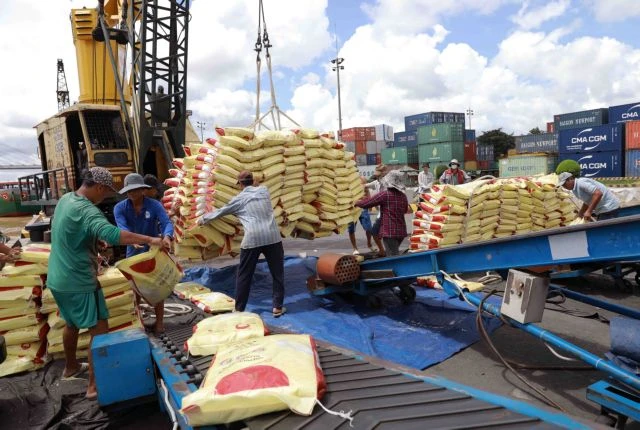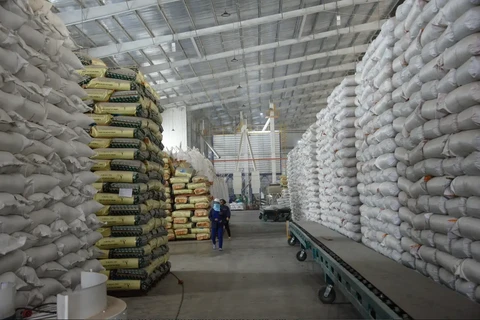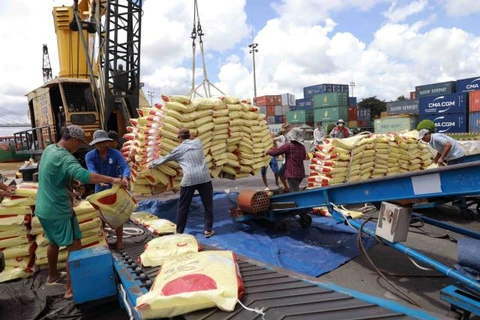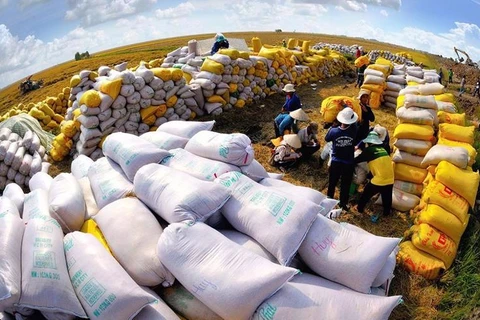
Hanoi (VNS/VNA) - Agriculture ministers of Vietnam and the Philippines have agreed to establish a rice industry alliance between the two countries and upgrade the trade relationship to an investment partnership in the rice industry.
At a talk in Hanoi on July 9, Vietnamese Minister of Agriculture and Rural Development Le Minh Hoan said that the Philippines is the largest rice export of Vietnam, accounting for 35-40 % of the country’s total exports.
The ministry’s statistics showed that Vietnam’s rice export totalled 4.68 million tonnes in the first half of this year, worth 2.98 billion USD, an increase of 104% in volume and 32% in value over the same period last year.
Vietnam’s rice industry has been making significant transformations in production, domestic consumption and exports in the context of rapid changing global market and consumer tastes as well as climate change, Hoan said.
“Vietnam has been focusing on improving quality, reducing costs, adapting to climate change, reducing emissions, ensuring the national food security, expanding export markets and building sustainable rice brands in the international markets,” he said.
Hoan said rice production plays a core role in ensuring the national and regional food security, as well as promoting economic development, ensuring social stability and leveraging the position of Vietnam in the international arena.
With the sustainable agriculture and rural development strategy by 2030 with a vision to 2045, Vietnam is aiming at green and low-emission agriculture value chain.
Philippine Secretary of Agriculture Francisco Tiu Laurel Jr, in response, said that the country has imported 2.17 million tonnes of rice in the first half of this year, of which 1.59 tonnes were from Vietnam. Vietnam has been the largest rice supplier to the Philippines for dozens of years.
Last week, officials from the Department of Agriculture of the Philippines visited the Cuu Long (Mekong) River Delta to study the 1-million-ha rice cultivation model.
Addressing challenges that the Philippines’ agriculture industry is facing, including low productivity and scattered production, which are weighing on food security, Francisco asked Vietnam to establish a rice industry alliance between the two countries. This will promote the rice trade relationship into an investment partnership.
He said that the Philippines will study the opportunities to import machinery and technologies from Vietnam to apply in rice cultivation in the Philippines. The first thing would be for the country to import fertilisers from Vietnam.
Agreeing with Francisco, Hoan said that the investment partnership in the rice industry will allow Vietnam to send appropriate technologies to optimise the rice production chain of the Philippines, instead of exporting just milled rice.
Not only rice, Hoan also urged greater cooperation in the fishery sector./.






















